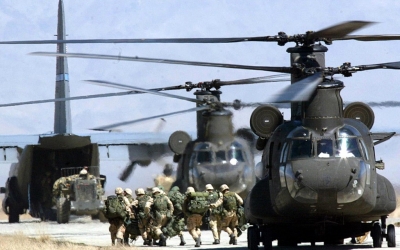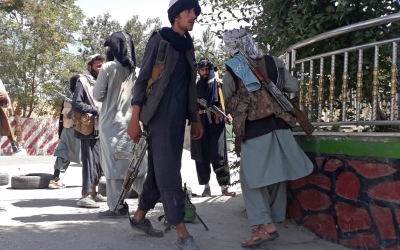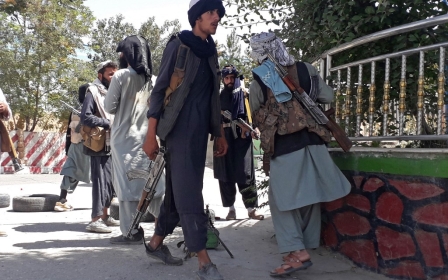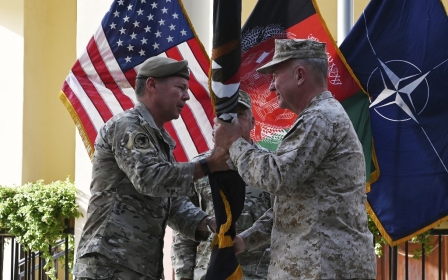Afghanistan: Iran asks Taliban to ensure diplomats’ safety
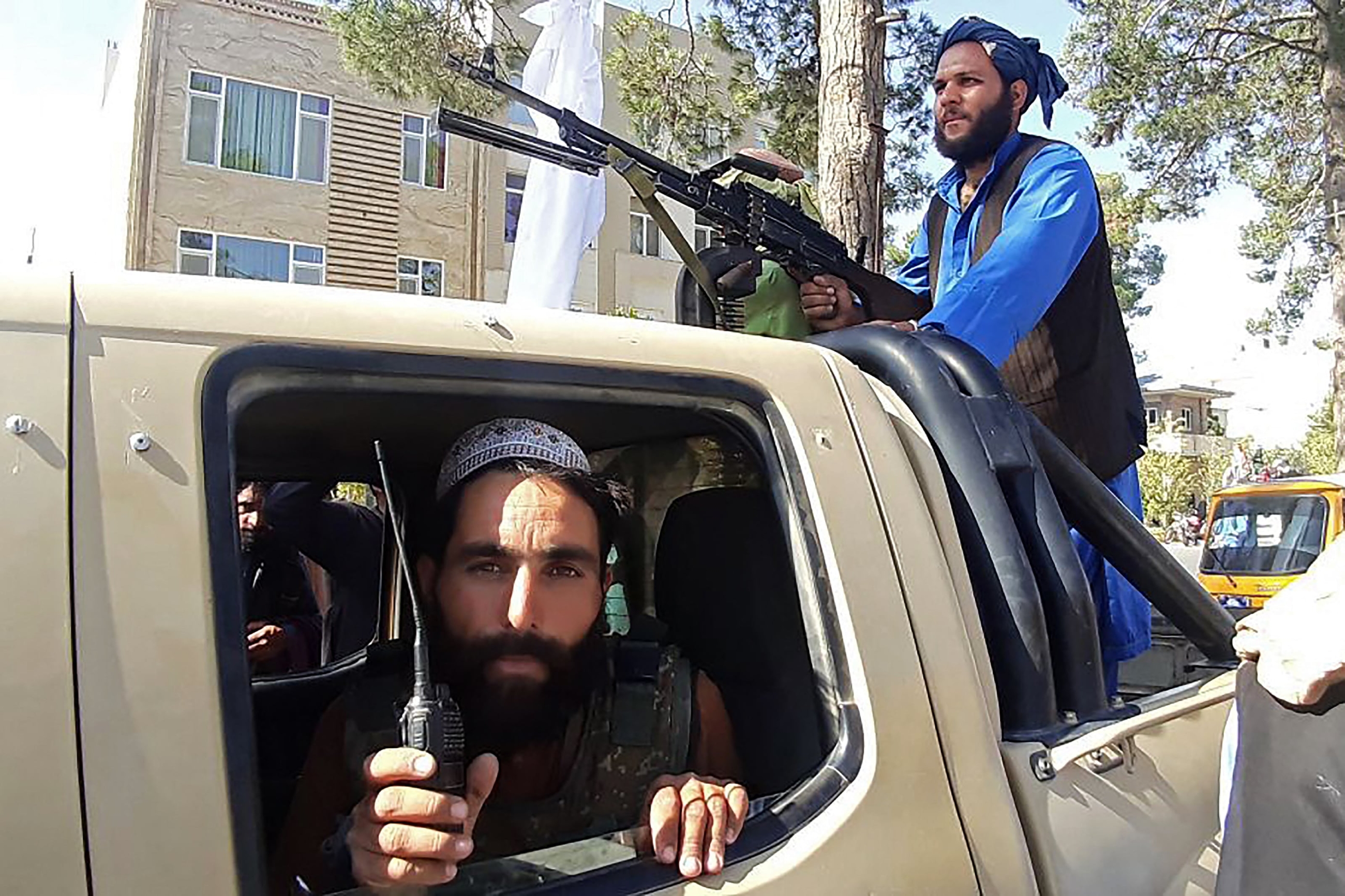
Iran's foreign ministry has urged the Taliban to ensure the safety of diplomats and staff at its consulate in the western Afghan city of Herat, which the militant movement says it has captured.
"Considering the Taliban's dominance over the city of Herat, we draw their serious attention to ensuring the complete safety and health of diplomats and diplomatic facilities," Iran's foreign ministry spokesman Saeed Khatibzadeh said on Twitter on Friday.
Western embassies and aid agencies began evacuating civilian staff from Afghanistan on Friday after the Taliban said it had captured the country's second and third biggest cities, Kandahar and Herat, in an advance that has raised fears of the collapse of the US-backed government.
"Our diplomats, like the diplomats of the three other countries present in Herat, are in perfect health and security and have no concerns," Iranian foreign ministry official Rasoul Mousavi earlier said on Twitter.
"The administration of Herat has been taken over by the forces of the Islamic Emirate (Taliban). The consul general, diplomats and staff... are inside the building. I am in regular contact with them," Mousavi, director-general for West Asia at the foreign ministry, tweeted late on Thursday.
"The forces administering the city are committed to (ensuring) the complete security of the Consulate General, its diplomats and staff," he added without elaborating.
'Interaction with anyone'
Relations between the Islamic Republic of Iran and the Taliban in Afghanistan have never been easy.
In 1998, while ruling Iran's eastern neighbour, the organisation murdered nine diplomats and an official Islamic Republic News Agency (IRNA) journalist in the Iranian consulate in Mazar-i-Sharif in the north of Afghanistan.
In response, the Islamic Republic put its military on the offensive, building up forces on the border with an eye to a possible military operation against the Taliban.
Since that nadir in relations - eventually remedied in part by the US-led invasion a few years later - Iran and the Taliban have alternated between negotiation and animosity, with a range of different perspectives among Iranian officials as to how to deal with the group.
In July this year, Tehran hosted a round of intra-Afghan talks with representatives of the Afghan government and the Taliban to discuss Afghanistan's future, following the pullout of US troops and the Taliban's capture of much of the country.
“We should have interaction with anyone who may be able to rise to power in Afghanistan," a retired Iranian diplomat told Middle East Eye. "Therefore, our current policy has been good, since the biggest threat for us would be the formation of an anti-Iran political system in Afghanistan."
Others within the Iranian government are wary of allowing their once-bitter rivals too much sway.
Turkish talks
The Taliban has asked all foreign forces to leave the country.
But on Thursday, a Taliban spokesperson told Middle East Eye that “under the right circumstances” its leaders might be willing to meet Turkish President Recep Tayyip Erdogan to discuss the ongoing crisis.
Erdogan said on Wednesday that there was a possibility to receive the person who leads the Taliban, without naming him, to exchange views on the situation regarding Kabul international airport, which Ankara wants to continue to protect.
“Everyone wants to meet our leader. And we would also like that, but in the right circumstances. There is communication between us and the Turkish embassy in Doha. And we like to have relations with all countries,” said Taliban spokesperson Mohammad Naeem in a written statement to MEE.
“We have said our word to Turkey about the security of Kabul airport in all frankness and clarity. All foreign forces must leave our country.”
The Taliban’s spiritual leader, Haibatullah Akhundzada, has not been seen in public since 2016. The group’s current public face is Mullah Abdul Ghani Baradar, one of the co-founders of the Taliban, who is leading the political office and is part of the group's negotiating team in Doha.
Even though Ankara continues to insist on carrying the airport mission that it sees as vital to the security and work of the foreign missions and aid groups in Kabul, the rapid collapse of the Afghan forces worries Turkish officials.
One US official told the Washington Post on Tuesday that the US military now assesses that a collapse of Afghan forces could occur within 90 days. Others said it could happen within a month.
Middle East Eye delivers independent and unrivalled coverage and analysis of the Middle East, North Africa and beyond. To learn more about republishing this content and the associated fees, please fill out this form. More about MEE can be found here.


